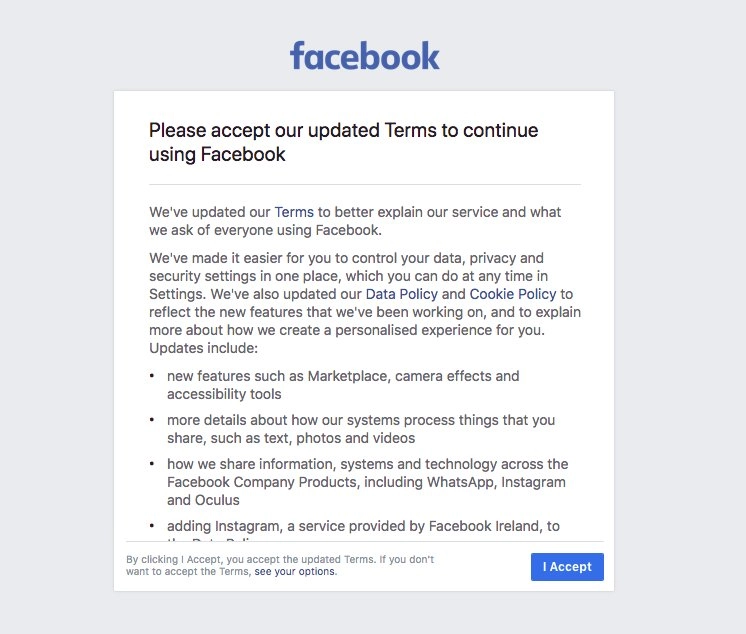The majority of us will face the issue of Privacy in the present and the immediate future. Consider this basic thought, which may sound like science fiction but is actually quite present today: Thanks to the devices we wear now, the harvesting of our biometric data is a possibility. This thought process led to this piece on privacy and big data.
Corporations can get to know us far better than we know ourselves. They can then not just predict our feelings but also manipulate our feelings. Monitoring of our biometrics can make episodes like that of Cambridge Analytica’s data hacks prehistoric in comparison.
Remember that you are worth quite a bit of money to the social channels you use. The podcast detailing the Congressional Antitrust Investigation on Tech Monopolies: Google, Facebook, Amazon, and Apple gives a serious look at how powerful these big data companies are. The scale is astronomical. Amazon captures 70% of all retail in the United States. They literally have seven times the revenue of their next largest competitor.
Now imagine their cloud computing capabilities. Take stock of the number of iPhones that are there. We know that what you share on social media, and the information that you surrender is a Big Data Issue; and, consider the number of search results Google controls. There's information about you being harvested. You should know how your information is being used.
Some Background
We hear of how Steve Bannon used Facebook to change politics and change culture. Facebook data, algorithms, and narratives were his key weapons. These tools were used by the Cambridge Analytica team to identify the dark triad — Narcissism, Machiavellianism, and Psychopathy — in people. We now know about Russian interference in American politics. We know how data had been manipulated to channel the latent proclivities of racism and anti-Semitism within America to divide it.
The same podcast makes mention of a great knowledge-infused book, which is Shoshana Zuboff's The Age of Surveillance Capitalism. In this book, Zuboff details the rise of a new form of power which will forever change our lives. By collecting behavioral data from their users, corporations have amassed an incomprehensibly large and detailed picture of our personal lives. They use this data to expand their corporate power and profitability. This, of course, has tremendous consequences for our privacy, but also for our political system.

Surveillance Capitalism is where it universally claims our private human experience as its free source of raw material. They take the rich predictive signals in our behavior and convert them into data. We hear of Facebook executives who promote advertising campaigns that exploit Facebook users' emotional states. Facebook's algorithms can determine, and allow advertisers to pinpoint, "moments when young people need a confidence boost." 97% of Facebook's revenue comes from its online targeted advertising markets. These are wholly owned and operated in this surveillance capitalist economic logic.
Readers of Cathy O'Neil's Weapons of Math Destruction will be compelled to believe the potential dangers of big data. O'Neil, a mathematician, analyses how the use of big data and algorithms in a variety of fields. These include insurance, advertising, education, and policing. They can lead to decisions that harm the poor, reinforce racism, and amplify inequality. Mathematicians and statisticians were for a very long time studying our desires, movements, and spending power. This is the Big Data economy we are living in.
Trust is Important
Consumers are more conscious of their data privacy than ever. A recent Tealium study on consumer data privacy found that 97% of consumers surveyed said they are somewhat or very concerned about protecting their data. Research by Accenture shows that 88% of consumers say companies that provide personalized experiences without compromising their trust are more appealing and can relate to their needs better than others.
We are focusing on Facebook in this particular blog post to quite a degree since it is the one singular social medium that is growing exponentially. One of the ways in which Facebook garners your data is by you revealing your data and your intentions via the act of publishing status updates and even commenting. You see, the act of commenting fulfills just one touchpoint in the process of these tech giants’ harvesting of data. Facebook built comments plugin to allow users to leave comments on websites, blogs, and forums through their Facebook accounts. It was expected to provide high-quality conversations over the internet but instead ended up spamming popular sites.
If you do use the Facebook Comments plugin, remember that your comments are a valuable content asset that shouldn’t be subject to Facebook’s Terms of Service, which basically says they can do whatever they want with them. An increasing amount of spam raises questions about how well the policy of malicious content online is going on. There are many misleading and offensive comments, usually attracting and persuading users towards a specific link to click it. These comments are often repetitive and can easily be identified as spam.
According to an estimation by Similartech, more than 360,000 unique domains have installed Facebook Comments plugin. It is still not clear why and how the spam filters of Facebook failed to filter spam comments. In 2015, one of the security firms, Symantec reported scammers had been trying to affect the comments sections of Facebook to spread malware.
For more than two years now, Facebook has been working on its content-moderation efforts and the spamming in Facebook Comment boxes shows that problematic content still finds its way to escape the loopholes. Moreover, Facebook can track what you type, even if you never post it. Data scientists can determine that status or comment has been typed by tracking code in the HTML form element of each page.
Read The Terms and Conditions
We live in a world where the concept of privacy already seems outdated. But that is largely because we’ve decided not to inquire about what happens when we trade it for convenience. The more connected you, and billions of others, are to Facebook, the more money Facebook makes by selling your personal information, and the more powerful it becomes.
The terms of service state, We use the data we have — for example, about the connections you make, the choices and settings you select, and what you share and do on and off our Products — to personalize your experience.

Basically, this means that Facebook uses every bit of personal information it can, collected both on and off Facebook, to entice advertisers. The better the company knows you through the personal information you share with your friends and family, the more likely they are to be able to sell you the stuff you want.
Choose The Right to Privacy
Big data is big business and value is created from customer insight. But, where is the moral line? What happens when companies cross that line? What if consumers could flip the equation to offer their data directly to the companies they trust? The future could be customer-monetized data.
We are the authors of our own destruction here since we don't choose to be aware. If you participate in Facebook, should you not have some semblance of an expectation of privacy. The former Federal Trade Commission Chairperson Jon Leibowitz publicly stated, “We all agree that consumers don’t read privacy policies.”
Ensure you choose privacy and are aware of how technology plans on using your data. The only solution is being non-participatory. The solution is choosing not to be part of a pernicious agenda that can be defined as Surveillance Capitalism.

Comments